Understanding fractions Easy Geometry Worksheets
16 filtered results
-
From - To
Explore our "Understanding Fractions Easy Geometry Worksheets" designed for young learners to grasp fundamental fraction concepts effortlessly. Our engaging and visually appealing worksheets help students learn how to divide shapes into equal parts, compare fractions, and understand their relationships in fun, interactive ways. Ideal for elementary students, these exercises promote foundational geometrical skills and confidence in fraction mastery through practical, straightforward activities. Prepare your child for future math success with Kids Academy's printable worksheets, perfect for classroom and home use. Equip your child with the essential tools to tackle fractions confidently and enjoyably!
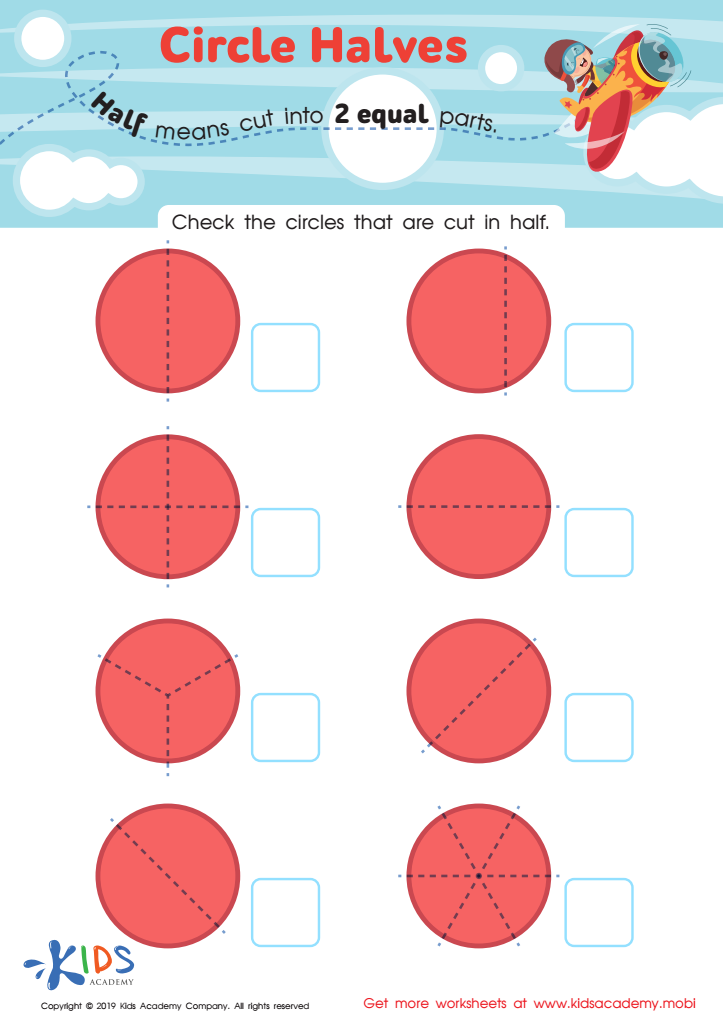

Circle Halves Worksheet
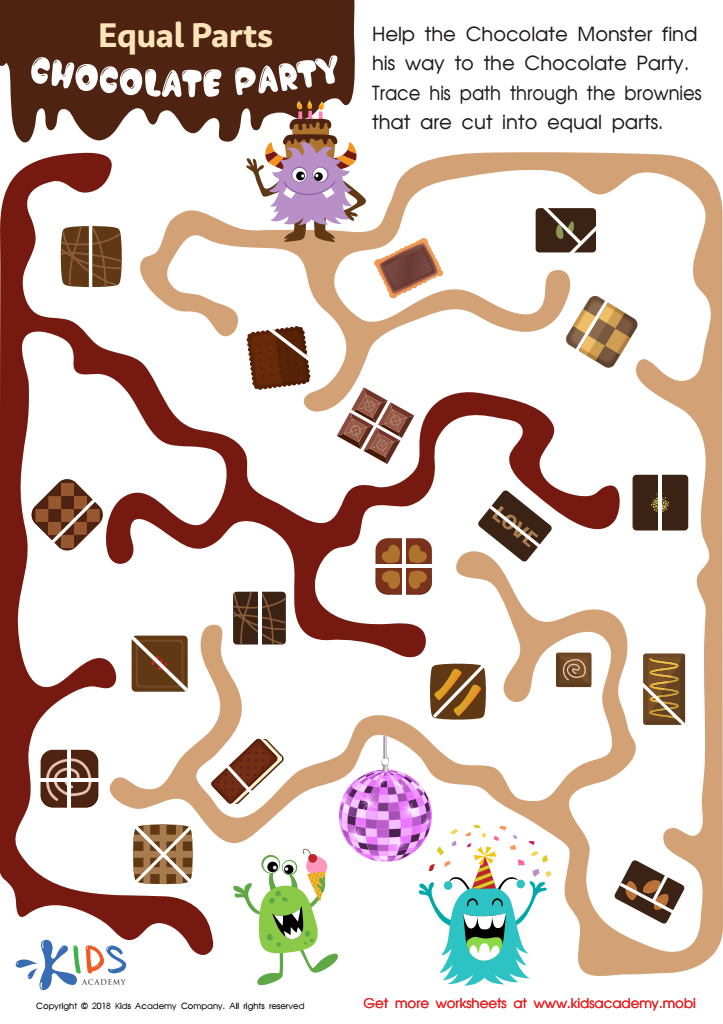

Equal Parts: Chocolate Party Worksheet
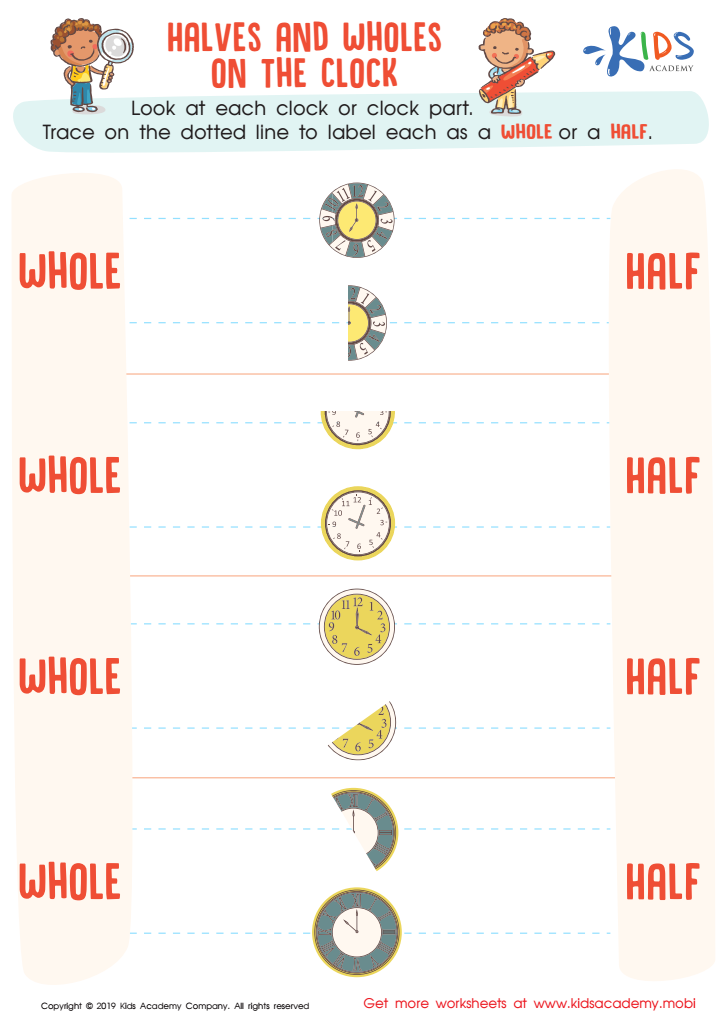

Halves and Wholes on the Clock Worksheet
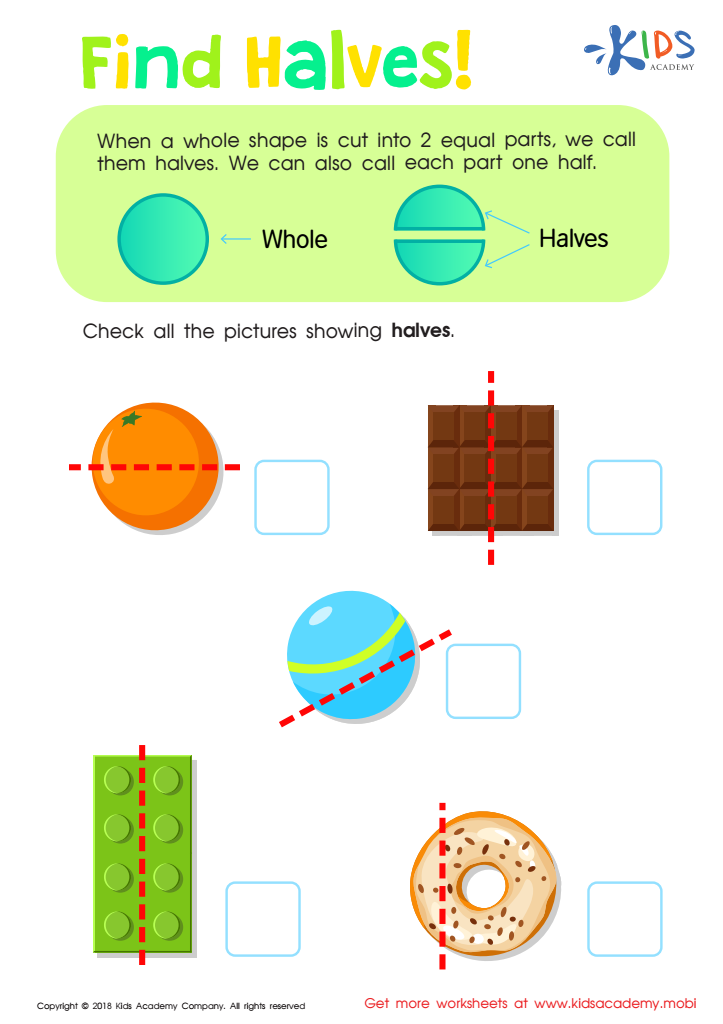

Find Halves Worksheet
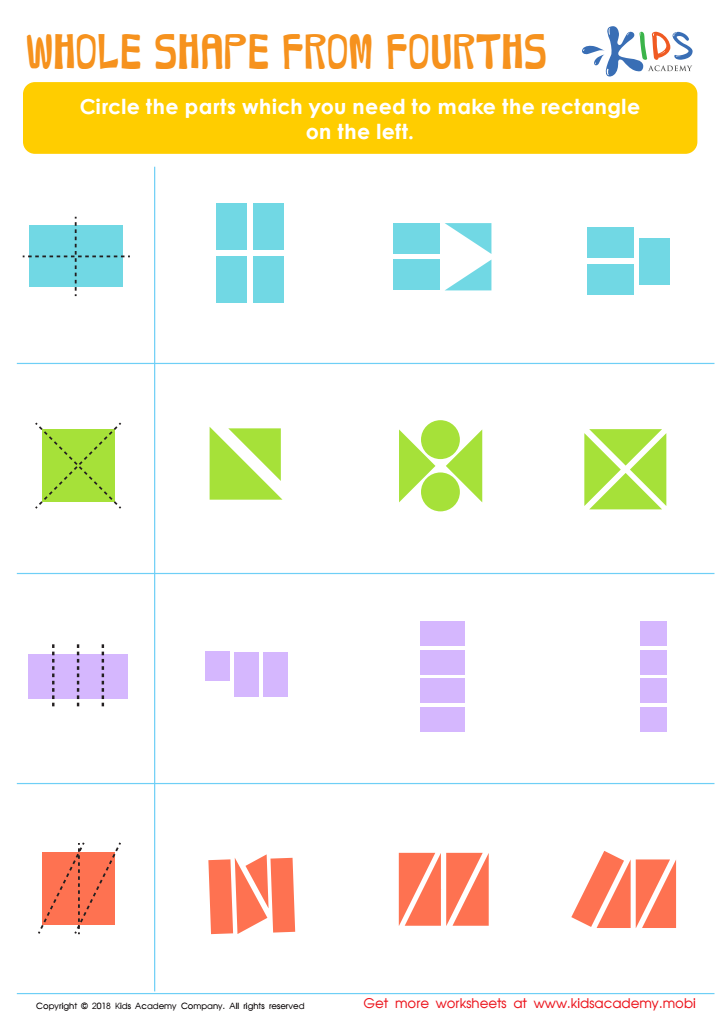

Whole Shape from Fourths Worksheet
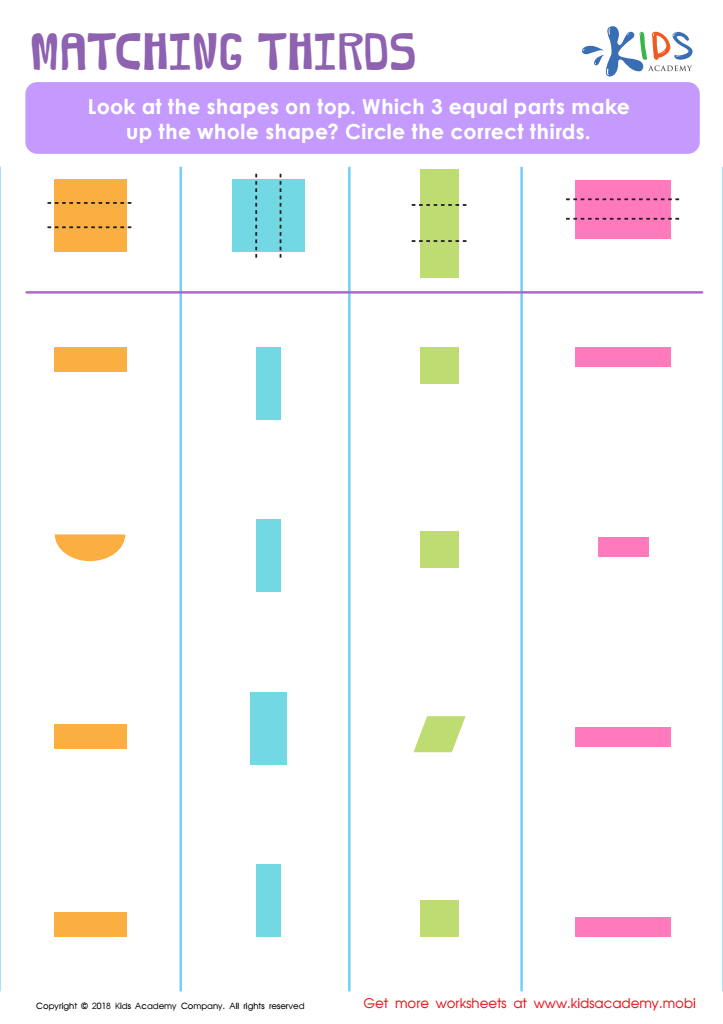

Matching Thirds Worksheet
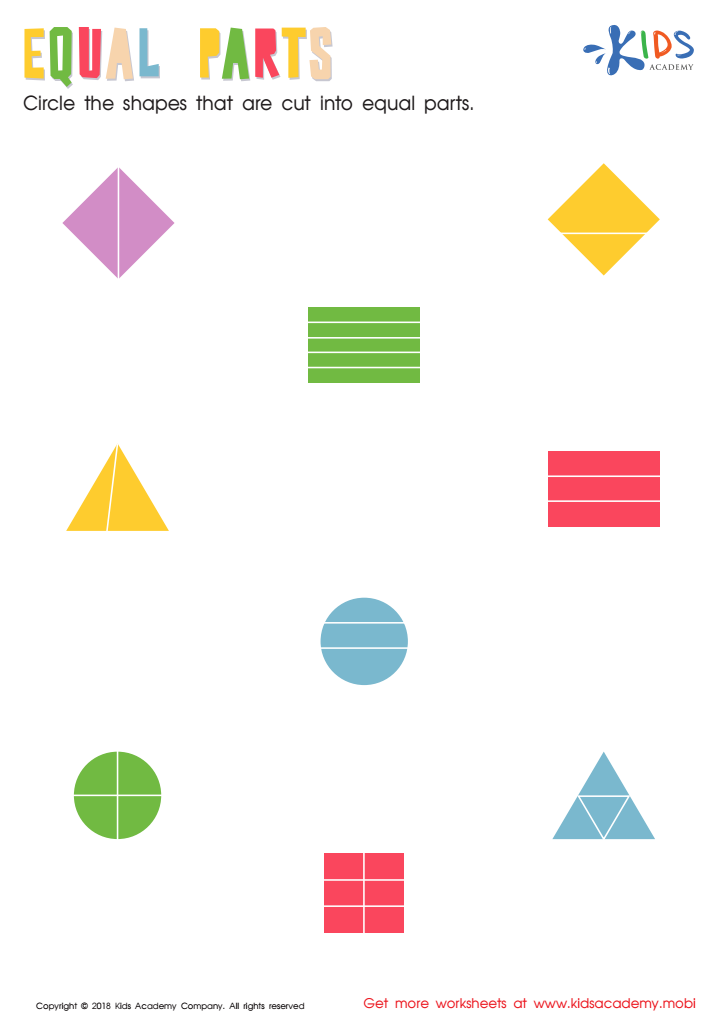

Equal Parts: Shapes Worksheet
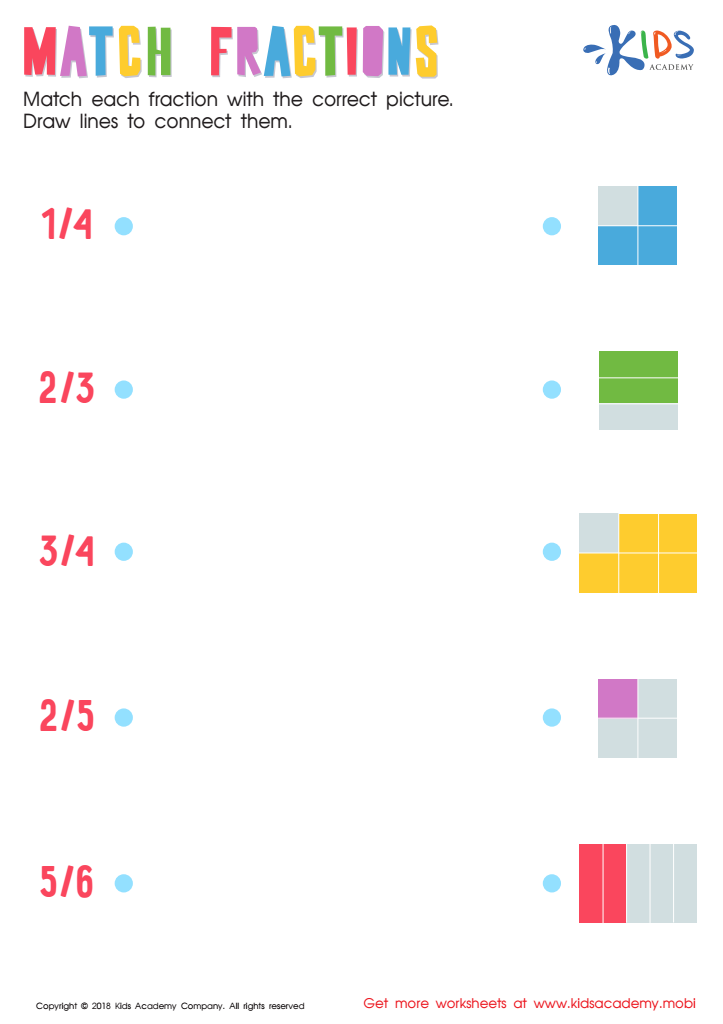

Match Fractions Worksheet
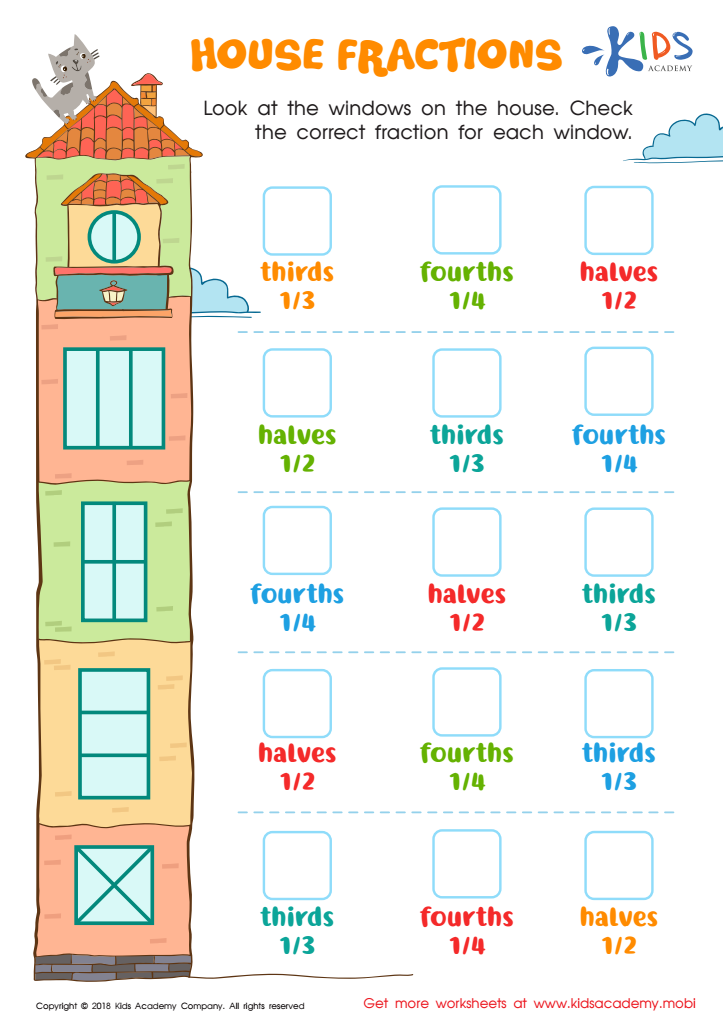

House Fractions Worksheet
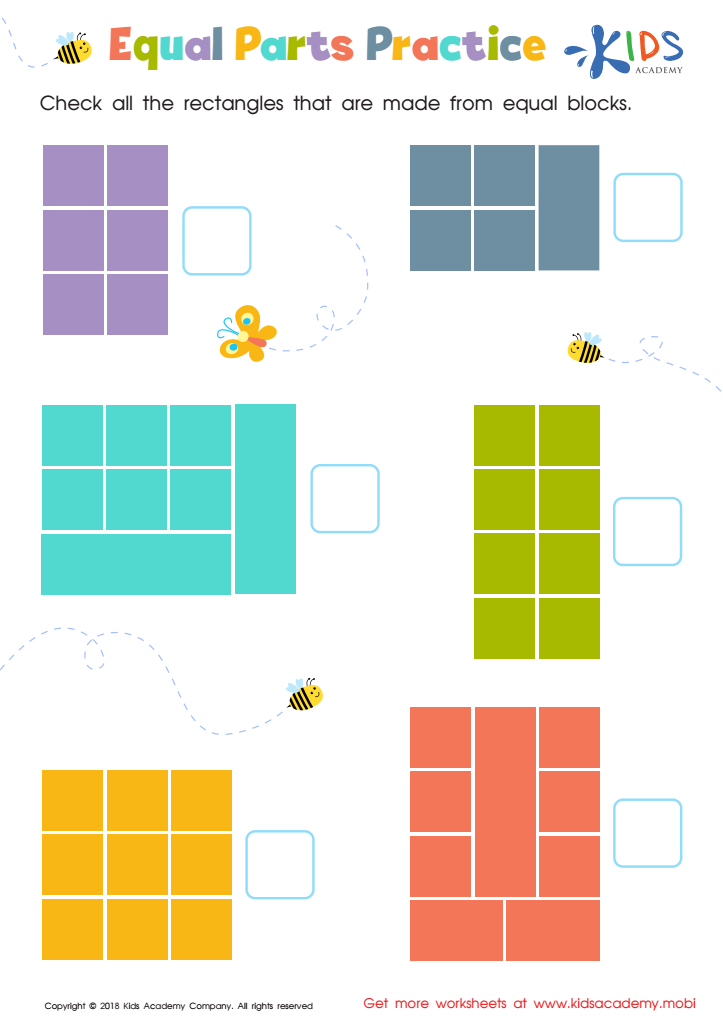

Equal Parts Practice Worksheet
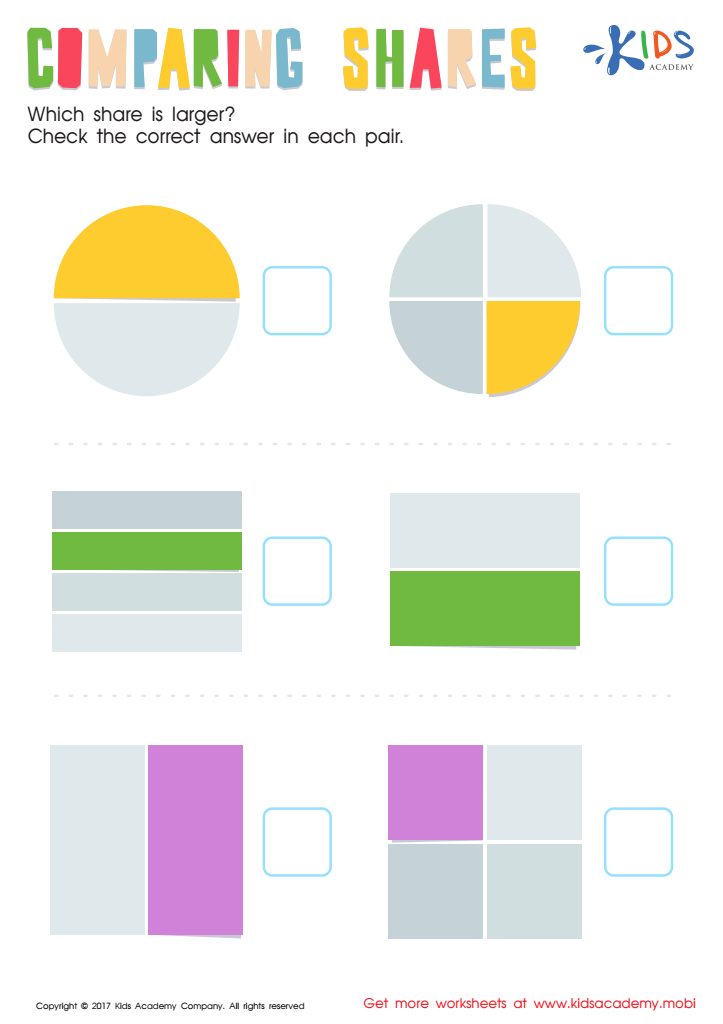

Comparing Shares Worksheet
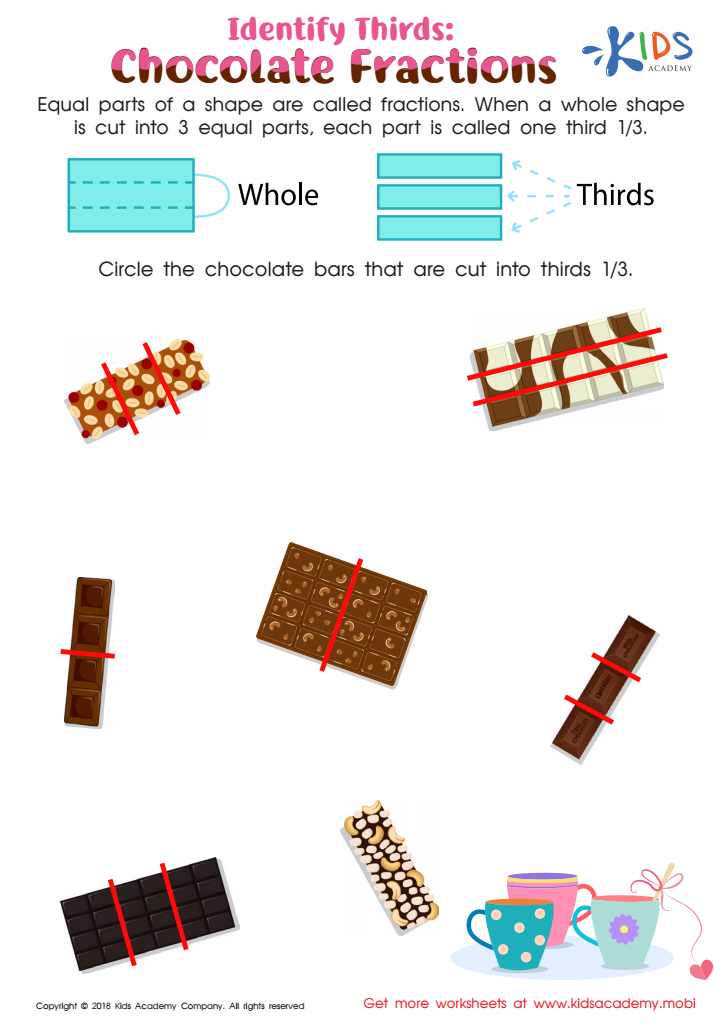

Identify Thirds: Chocolate Fractions Worksheet
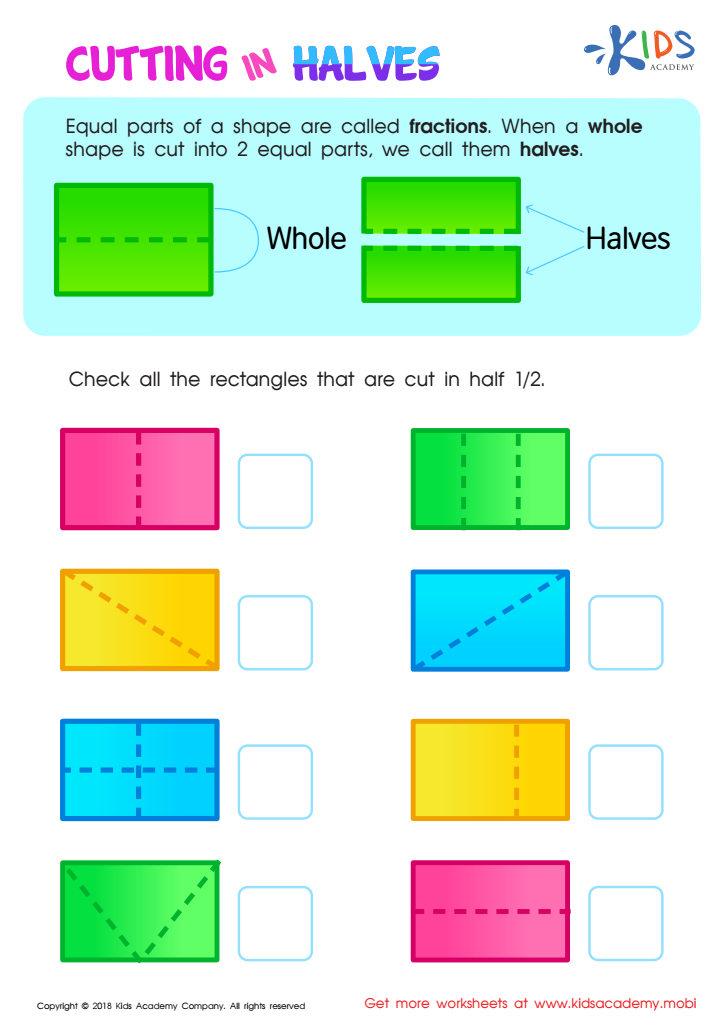

Cutting in Halves Worksheet
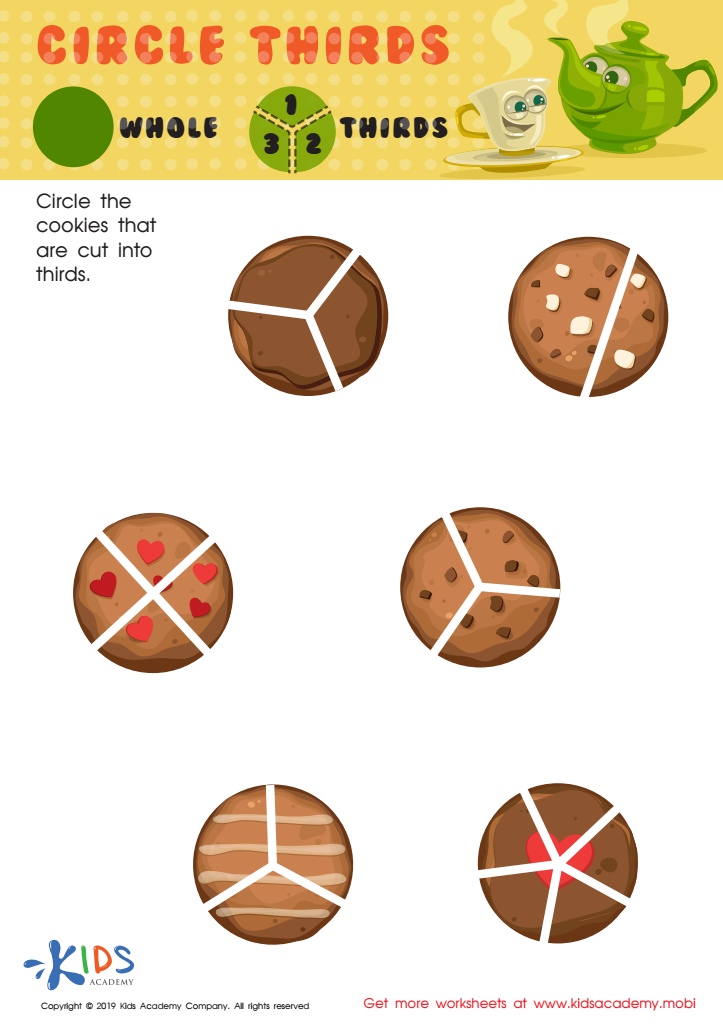

Circle Thirds Worksheet
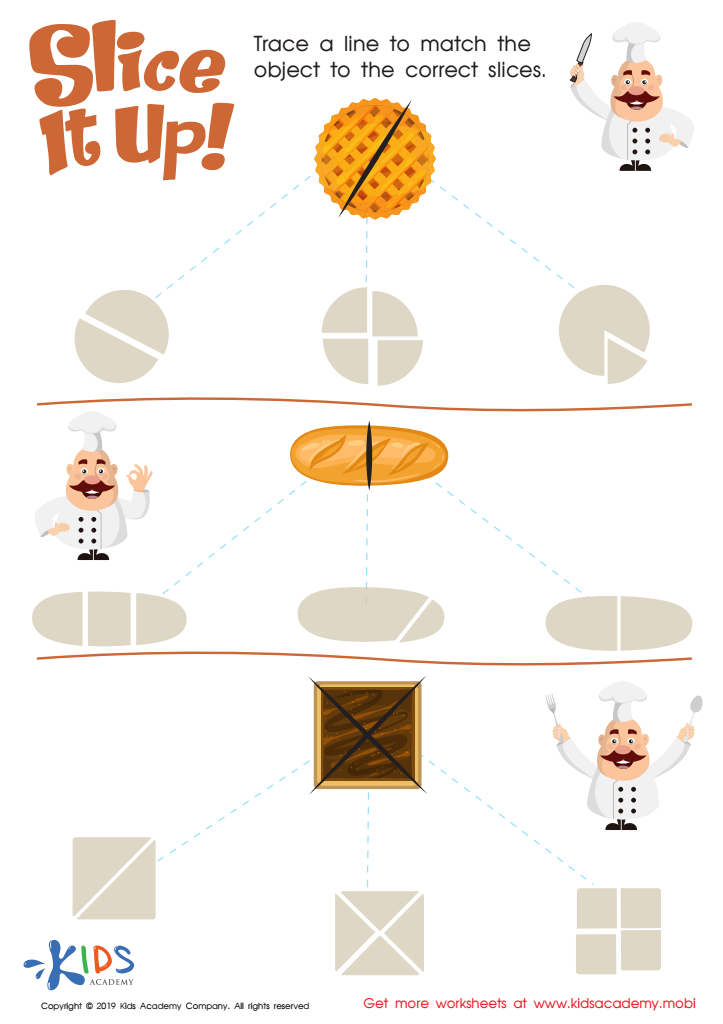

Slice It Up Worksheet
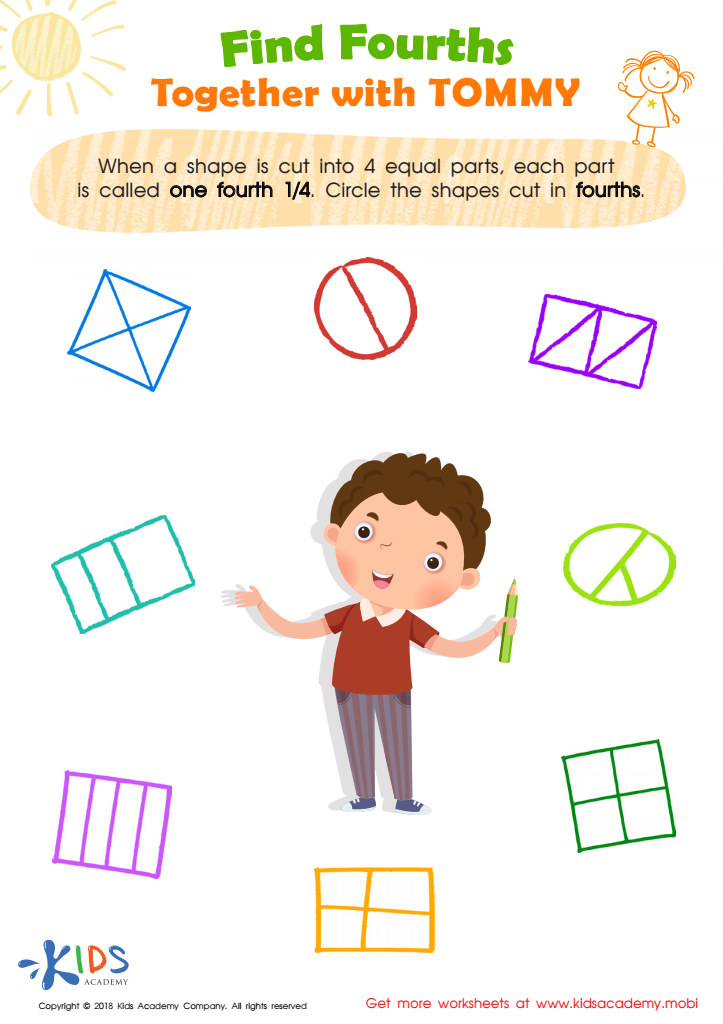

Find Fourths Together with Tommy Worksheet
Understanding fractions and basic geometry is essential for young learners as it forms the foundation for advanced mathematical concepts and everyday problem-solving skills. For parents and teachers, fostering a solid grasp of these topics at an early age is crucial for several reasons.
Firstly, fractions help children understand proportions, parts of a whole, and division, which are skills they will use throughout their lives. Cooking, shopping, and even time management often involve fractions, so a strong understanding helps children navigate daily activities with confidence and accuracy.
Secondly, early exposure to geometry instrumental in developing spatial awareness and problem-solving abilities. Recognizing shapes, understanding their properties, and comprehending how they interact teaches children critical thinking and analytical skills that are applicable beyond mathematics, including in art, design, and engineering.
Moreover, proficiency in these areas can enhance a child's self-esteem and performance in school. Success in early mathematics builds a strong academic foundation, making future learning easier and potentially more enjoyable.
Encouraging an understanding of these fundamental mathematical concepts also fosters curiosity and a love for learning. When children confidently grasp the basics, they are more likely to feel motivated and engaged, setting them up for academic success and a lifelong appreciation for the subject.
 Assign to My Students
Assign to My Students


























